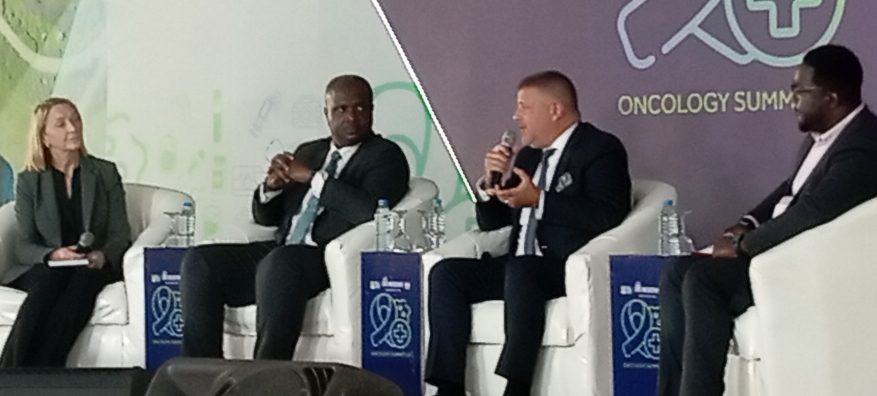By Jane Okeke
Experts and participants at the MedServe Summit 2.0, on Thursday in Abuja, shared their thoughts on enhancing the oncology workforce in Nigeria.
The experts spoke in one of the panel sessions with the topic “Minimum Requirements for Establishing Professional Training Programmes in Cancer Diagnosis, Treatment and Therapy”.
The Registrar/ CEO Radiographers Registration Board of Nigeria, Dr. Mark Okeji, called on stakeholders to join hands in enhancing the oncology workforce.
Dr. Okeji lamented that Nigeria is having acute shortage of radio-therapists
“The training here is very critical, so we are calling on all stakeholders to join hands because we have a very acute shortage of radio-therapists.
The Registrar said the Board has adapted a curriculum drawn from the best of the programmes across the world, saying the requisite professionals from both the universities and clinical sector will be selected to train students at the various centres.
According to him, the Board is currently proposing to have a robust training where radiographers will graduate from the university as complete diagnostic and therapist radiographers.
“If that’s approved by the National University Commission, in the next 10 years we will flood everywhere with qualified radiographers”, Dr. Okeji added.
On his part, the National Chairman and Vice President, West African College of Physician, Nigeria Chapter, Prof Aboi Madaki, said the College is contributing to oncology practice in the country.
“As a college, we are training post graduates in medical specialties, including oncology; we have six different faculties, two of which have already developed a curriculum, and got approved and commenced training in nuclear medicine and pediatric oncology.
“So, today we are making a good contribution to oncology practice In Nigeria”, he said.
Also, the Faculty Chairman, Internal Medicine and National PostGraduate Medical College, Prof. Adebola Ogunbiyi, said there is an urgent need to have medical oncology.
While stating that the College would commence training in medical oncology, Prof. Ogunbiyi said the medical oncology will be domiciled in internal medicine.
“For what it will entail, currently we have 12 specialties. So in all our specialties, the first two years will be general internal medicine training, while the next three years would be used to specialize in cardiology, neutrology, and demonology.
“We are hoping to have medical oncology, and the first thing we are trying to do is to come up with a curriculum. We need evidence based data, yes we will use what’s existing but we also want to have something that’s relevant to our communities”, she said.
In his contributions, the Acting Executive Secretary of the National University Commission (NUC), Mr. Chris Maiyaki, emphasized that the Commission is not a training institution but a regulatory and quality assurance agency for university education in Nigeria.
Mr. Maiyaki, represented by his deputy, Dr. Noel Saliu said part of the functions of NUC is to approve the establishment of new programmes in the university, including medical programmes where oncology falls into.
He further stated that for any programme to commence operation in any of the Nigerian universities, it must go through internal processes before getting approval from NUC.
“For NUC to approve a new programme, we do what is called resource verification exercise to ensure that you have adequate human and material resources”, he said.



